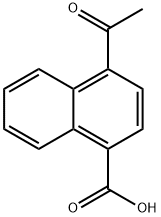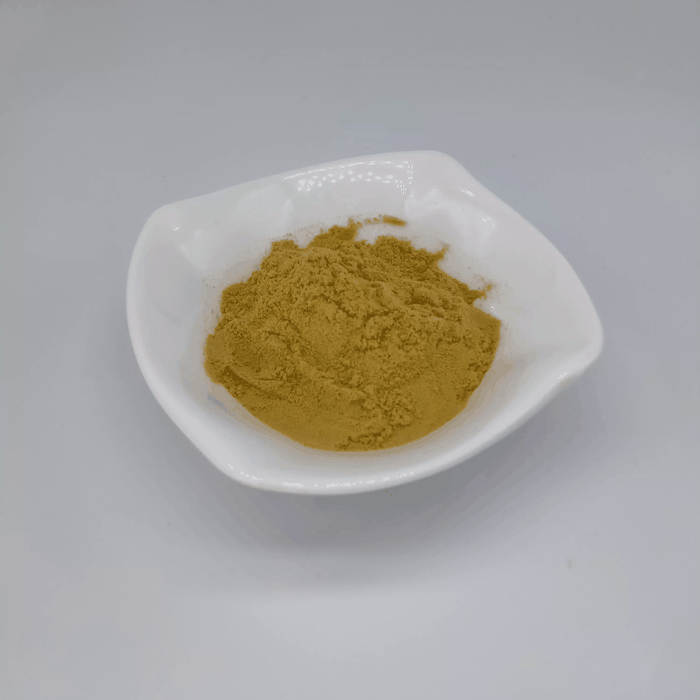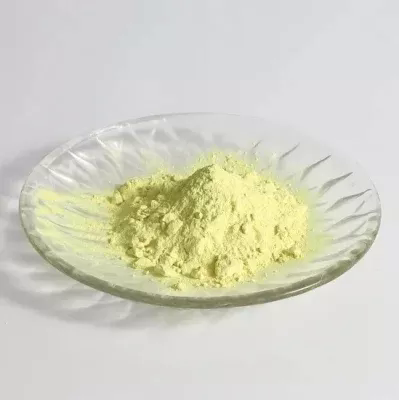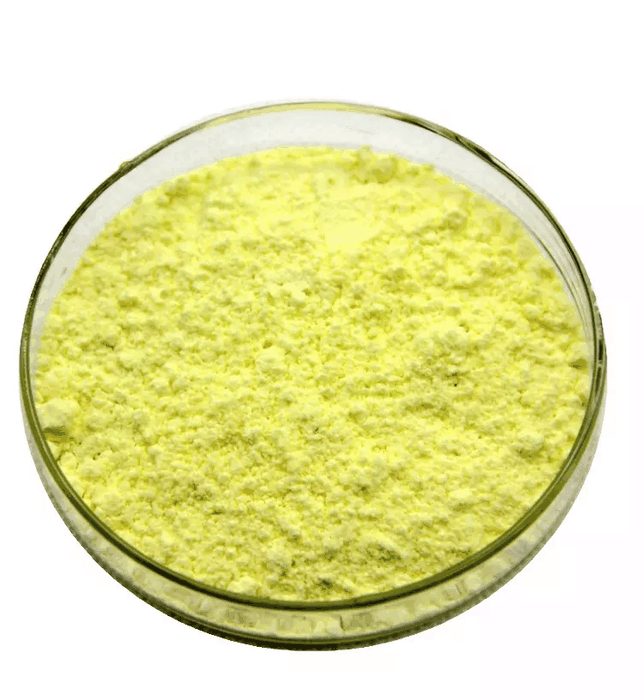4-acetyl-1-naphthoic acid
- CAS NO.:131986-05-5
- Empirical Formula: C13H10O3
- Molecular Weight: 214.22
- MDL number: MFCD24480081
- SAFETY DATA SHEET (SDS)
- Update Date: 2023-04-27 16:27:43

What is 4-acetyl-1-naphthoic acid?
The Uses of 4-acetyl-1-naphthoic acid
4-acetyl-1-naphthoic acid is kind of mono-constituent substance, it is useful research chemical.
Properties of 4-acetyl-1-naphthoic acid
| Melting point: | 184 °C |
| Boiling point: | 442.9±28.0 °C(Predicted) |
| Density | 1.278±0.06 g/cm3(Predicted) |
| pka | 2.85±0.10(Predicted) |
| form | powder |
| color | Faint yellow |
Safety information for 4-acetyl-1-naphthoic acid
| Signal word | Warning |
| Pictogram(s) |
 Exclamation Mark Irritant GHS07 |
| GHS Hazard Statements |
H315:Skin corrosion/irritation H319:Serious eye damage/eye irritation H335:Specific target organ toxicity, single exposure;Respiratory tract irritation |
| Precautionary Statement Codes |
P261:Avoid breathing dust/fume/gas/mist/vapours/spray. P264:Wash hands thoroughly after handling. P264:Wash skin thouroughly after handling. P271:Use only outdoors or in a well-ventilated area. P280:Wear protective gloves/protective clothing/eye protection/face protection. P312:Call a POISON CENTER or doctor/physician if you feel unwell. P362:Take off contaminated clothing and wash before reuse. P302+P352:IF ON SKIN: wash with plenty of soap and water. P304+P340:IF INHALED: Remove victim to fresh air and Keep at rest in a position comfortable for breathing. P305+P351+P338:IF IN EYES: Rinse cautiously with water for several minutes. Remove contact lenses, if present and easy to do. Continuerinsing. P403+P233:Store in a well-ventilated place. Keep container tightly closed. P501:Dispose of contents/container to..… |
Computed Descriptors for 4-acetyl-1-naphthoic acid
4-acetyl-1-naphthoic acid manufacturer
Sanovi Pharmaceuticals Pvt Ltd
1Y
Phone:+919900284769
Whatsapp: +91-9900284769
product: 4-Acetylnaphthalene-1-carboxylic acid 98%
New Products
(S)-3-Aminobutanenitrile hydrochloride 4-Methylphenylacetic acid N-Boc-D-alaninol N-BOC-D/L-ALANINOL Tert-butyl bis(2-chloroethyl)carbamate 3-Morpholino-1-(4-nitrophenyl)-5,6-dihydropyridin- 2(1H)-one Furan-2,5-Dicarboxylic Acid Tropic acid 1-Bromo-3,5-Di-Tert-Butylbenzene S-2-CHLORO PROPIONIC ACID ETHYL ISOCYANOACETATE 2-Bromo-1,3-Bis(Dimethylamino)Trimethinium Hexafluorophosphate 4-IODO BENZOIC ACID 3-NITRO-2-METHYL ANILINE 1-(2,4-DICHLOROPHENYL) ETHANAMINE (2-Hydroxyphenyl)acetonitrile 4-Bromopyrazole 2-(Cyanocyclohexyl)acetic acid 4-methoxy-3,5-dinitropyridine 1-(4-(aminomethyl)benzyl)urea hydrochloride 2-aminopropyl benzoate hydrochloride diethyl 2-(2-((tertbutoxycarbonyl)amino) ethyl)malonate tert-butyl 4- (ureidomethyl)benzylcarbamate Ethyl-2-chloro((4-methoxyphenyl)hydrazono)acetateYou may like
-
 131986-05-5 4-acetyl-1-naphtoic acid 98%View Details
131986-05-5 4-acetyl-1-naphtoic acid 98%View Details
131986-05-5 -
 131986-05-5 98%View Details
131986-05-5 98%View Details
131986-05-5 -
 4-Acetylnaphthalene-1-carboxylic acid 98%View Details
4-Acetylnaphthalene-1-carboxylic acid 98%View Details
131986-05-5 -
 1975-50-4 98%View Details
1975-50-4 98%View Details
1975-50-4 -
 2-HYDROXY BENZYL ALCOHOL 98%View Details
2-HYDROXY BENZYL ALCOHOL 98%View Details
90-01-7 -
 2-Chloro-1,3-Bis(Dimethylamino)Trimethinium Hexafluorophosphate 221615-75-4 98%View Details
2-Chloro-1,3-Bis(Dimethylamino)Trimethinium Hexafluorophosphate 221615-75-4 98%View Details
221615-75-4 -
 14714-50-2 (2-Hydroxyphenyl)acetonitrile 98+View Details
14714-50-2 (2-Hydroxyphenyl)acetonitrile 98+View Details
14714-50-2 -
 118753-70-1 98+View Details
118753-70-1 98+View Details
118753-70-1
Statement: All products displayed on this website are only used for non medical purposes such as industrial applications or scientific research, and cannot be used for clinical diagnosis or treatment of humans or animals. They are not medicinal or edible.